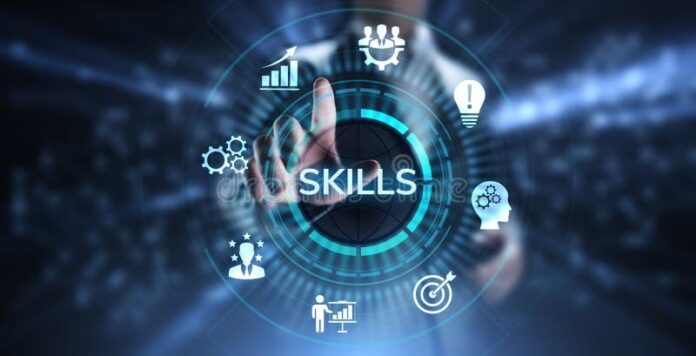As technology reshapes industries and global challenges redefine priorities, the skills for success are shifting fast. From AI mastery to creative resilience, find out how to stay ahead in the workforce of tomorrow.
The World Economic Forum’s Future of Jobs Report 2025 highlights the rapid evolution of global labor markets, driven by technological advances, demographic changes, economic pressures, and environmental priorities. These transformations demand that workers and organizations focus on building new skills to remain competitive and relevant. This report sums up the key skills outlined in the WEF report and their anticipated significance in shaping the workforce of the future.
- Analytical Thinking: The Cornerstone of Modern Workplaces
Analytical thinking continues to be the most sought-after skill, with 70% of employers identifying it as essential for 2025. This competency involves the ability to evaluate complex information, draw logical conclusions, and support data-driven decision-making, making it indispensable across industries.
- Resilience, Flexibility, and Agility
In an era of economic volatility and global disruptions, resilience, flexibility, and agility have become critical. These skills enable workers to adapt to change, manage stress, and navigate uncertain environments while maintaining productivity and innovation.
- Leadership and Social Influence
The ability to lead effectively and exert positive social influence is increasingly valued. Employers prioritize skills in leadership, including guiding diverse teams, fostering collaboration, and influencing stakeholders to achieve organizational goals.
- Lifelong Learning and Curiosity
A commitment to lifelong learning is no longer optional in the modern workforce. Workers must cultivate curiosity and proactively seek knowledge to stay ahead of industry trends, technological developments, and emerging challenges.
- Creative Thinking and Innovation
Creative thinking complements technical expertise by enabling innovative problem-solving and strategy development. This skill is particularly important for roles requiring the design of unique solutions in fast-paced, technology-driven environments.
- Technological Proficiency and Digital Literacy:
With the growing integration of technology into work processes, technological literacy is a core requirement. Key competencies include expertise in:
- Artificial Intelligence (AI) and Big Data: Proficiency in AI-driven tools, machine learning, and data analysis.
- Cybersecurity and Networks: Managing digital infrastructure and safeguarding against threats.
- Programming and Software Development: Developing applications and systems to support business goals.
- Automation and Robotics: Understanding and deploying robotics to streamline operations.
- Energy Systems and Digital Integration: Supporting advancements in energy generation, storage, and distribution.
- Environmental Stewardship
The demand for skills in environmental stewardship is on the rise as industries focus on climate mitigation and sustainable practices. Workers equipped with expertise in:
- Renewable Energy Engineering
- Climate Adaptation and Mitigation
- Green Technology Deployment
will be essential for achieving global decarbonization goals and driving organizational transformation. - Teaching, Mentoring, and Talent Development
As demographic shifts reshape labor markets, skills in mentoring, teaching, and motivating others are gaining prominence. These abilities are crucial for nurturing talent, empowering underrepresented groups, and ensuring inclusivity in workplaces.
- Advanced Communication Skills
The ability to communicate effectively across diverse cultures and mediums remains critical. Workers must refine skills in interpersonal communication, collaboration, and multilingual competencies to thrive in interconnected global industries.
- Health and Well-being Advocacy
As workplaces increasingly prioritize employee welfare, skills related to health advocacy, stress management, and emotional intelligence are becoming crucial. Employers are recognizing the value of maintaining a resilient and mentally healthy workforce.
- Specialized Technical Skills: Adapting to Emerging Roles
The fastest-growing technical roles demand niche expertise in areas such as:
- Autonomous and Electric Vehicle Engineering
- Internet of Things (IoT) Development
- Environmental Engineering
- DevOps and Systems Engineering
- Adaptability in Task Automation
As automation redefines job roles, workers must balance automation literacy with human-centric skills like collaboration and process optimization. The ability to work alongside machines and adapt to blended task environments is increasingly essential.
Addressing Skill Gaps: The Path Forward
The WEF report highlights that nearly 39% of today’s skills will become obsolete by 2030, emphasizing the urgent need for reskilling and upskilling. Employers are adopting strategies to address this challenge, including:
- Upskilling Initiatives: Providing current employees with advanced training for emerging roles.
- Reskilling Programs: Transitioning workers from declining jobs to growth-oriented opportunities.
- Well-being Support: Enhancing workforce productivity through mental health and welfare initiatives.
- Diversity and Inclusion Initiatives: Tapping into underrepresented talent pools to expand workforce capabilities.
Conclusion
A balanced focus on technological expertise, human-centric abilities, and environmental competencies is key to navigating these changes successfully. By fostering resilience, innovation, and lifelong learning, workers and organizations alike can embrace the opportunities of the future and thrive in an ever-evolving world of work.




